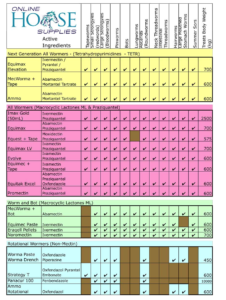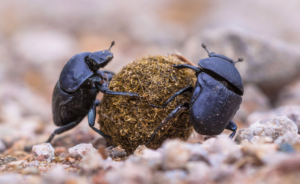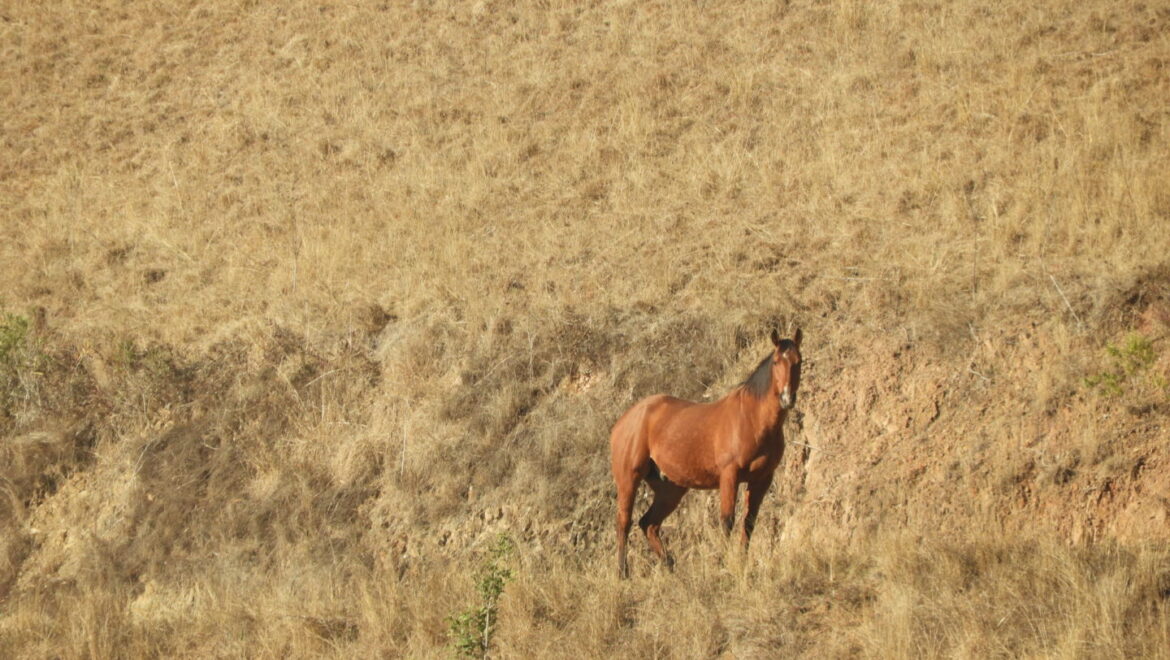Avoiding Parasites without contributing to global anti-parasitic resistance
It isn’t news to any of us, that as responsible horse owners, we must be vigilant about managing our horses’ health. A crucial aspect of horse health that cannot be ignored is the management of internal parasites. Common equine parasites include roundworms, tapeworm and bots. These tiny little blighters can lead to a range of health issues in horses, including poor growth in young horses, lack of energy, coarse, dull, and dry coats, weight loss, ‘pot belly,’ poor performance, skin sores, respiratory issues, colic, and even death.
While most of you are already aware of this, there’s an idea you might not have considered:
Not worming your horse routinely. This doesn’t mean avoiding worming altogether but being strategic about when to worm. The practice of worming horses every 6-8 weeks and rotating wormers throughout the year is outdated, often ineffective, and can contribute to parasites becoming resistant to available anithelmintics (de-wormers).
Plus, who enjoys the struggle?
Monitoring with Faecal Egg Counts (FEC)
Instead of frequent worming, we should regularly monitor parasite burdens using faecal egg counts (FEC). An FEC is a lab test that measures the number of parasite eggs in a horse’s manure. Yes, this means we get to play with horse poop! Oh the joys of horse ownership!
The process is super straightforward:
- Collect samples from each horse in your herd. That’s right, we get to follow them around for a bit and quite likely, they won’t poop until you decide to walk away. Consider it an opportunity for mindfulness while poop scooping.
- Gather at least three faecal balls to create a sample the size of an orange.
- Place the poop in a zip-lock bag, labelling it with each horse’s name so you aren’t left wondering ‘Who shat that’. Remove all the air and seal the bag.
- Keep the sample in the fridge (preferably next to the chocolate) until you can drop it off to your vet.
- Ensure the sample is examined within five days of collection.
The sample is then examined under a microscope to determine the number of parasite eggs present.
Hot tip for Aussies living in NSW – Dr Oliver Liyou at EVDS Vet Clinic, Grafton, LOVES getting mail order horse poop for Faecal Egg Count. EVDS offer FEC services. You can call them or reach out via their website to book your horse’s poop in.
What Do Faecal Egg Counts Tell Us?
FEC results help vets determine the level of parasitic infection in your horses and whether they need treatment with anthelmintic drugs – why spend money on wormers and wrestle with horses if you don’t have to?
However, as with all good things, FEC has its’ limitations. It is an effective way to detect strongylyte and ascarid eggs but not as good at identifying tapeworms, pinworms, bots, or encysted cyathostomes. Consequently, horses with consistently low faecal egg counts might still need an annual treatment targeting these invasive parasites.
Basic De-worming advice
You may be surprised to know that despite the gazillions of dewormer brands available, there are only three chemical classes of equine dewormers that actually still work – these are Benzimidazoles, Macrocyclic Lactones, and Tetrahydropyrimidines. Years of overuse have led to some parasites developing resistance to certain drug classes. Therefore, it’s essential to use these three classes sparingly to slow down resistance.

Reducing Parasite Burden: Environmental Management
While FEC and strategic use of dewormers are crucial, they should be complemented by good environmental management of pastures, yards, and stables. Here are additional steps to reduce worm burden:
- Remove manure from paddocks, yards, and stables.
- Compost manure in a dedicated pile away from grazing areas.
- Feed horses in buckets rather than on the ground.
- Keep water sources clean. I have heard that keeping small ‘tank cleaning’ fish can help, but they might be at risk of birds etc.
- Spread manure piles in hot, dry weather to expose and kill parasite eggs, or burn piles (check with local fire authorities first).
- Avoid harrowing paddocks in cold weather as it spreads parasites.
- Prevent overgrazing of pastures.
- Rotate horses with other species (such as cattle, sheep, or goats) to break the life cycle of species-specific parasites. Chickens are also a good option.
- Remove bot eggs from your horse’s coat to prevent ingestion. Do this in area that horses wont be grazing and use a bot egg knife or razor. I don’t recommend using the same razor to shave your legs.

#SaveOurShitBeetles
Here is a fun fact for you. Dung beetles- those cutsie little black bugs we see roaming around the paddocks, they are your friends. Dung beetles reduce parasite burdens by burying horse manure, taking parasite eggs and fly larvae underground where they can’t return to the surface. As the remaining manure dries out, any surviving larvae die. However, dewormers can harm dung beetles because residual medication in the manure kills these beneficial insects. Nature works in wonderful ways right?!
Something to keep in mind though- Mectin based de-wormers harm dung beetles so please, use other products (if you can) during October-March (in Australia).References: I humbly thank the below for their contribution to this blog post
- Tribute Equine Nutrition.
- Dr. Tania Sundra, BSc. (Hons), BVMS, MANZCVS (Equine Medicine), Avon Ridge Equine Veterinary Services, Western Australia.
- Zeroeggcount.com
- Herdz.com.au


